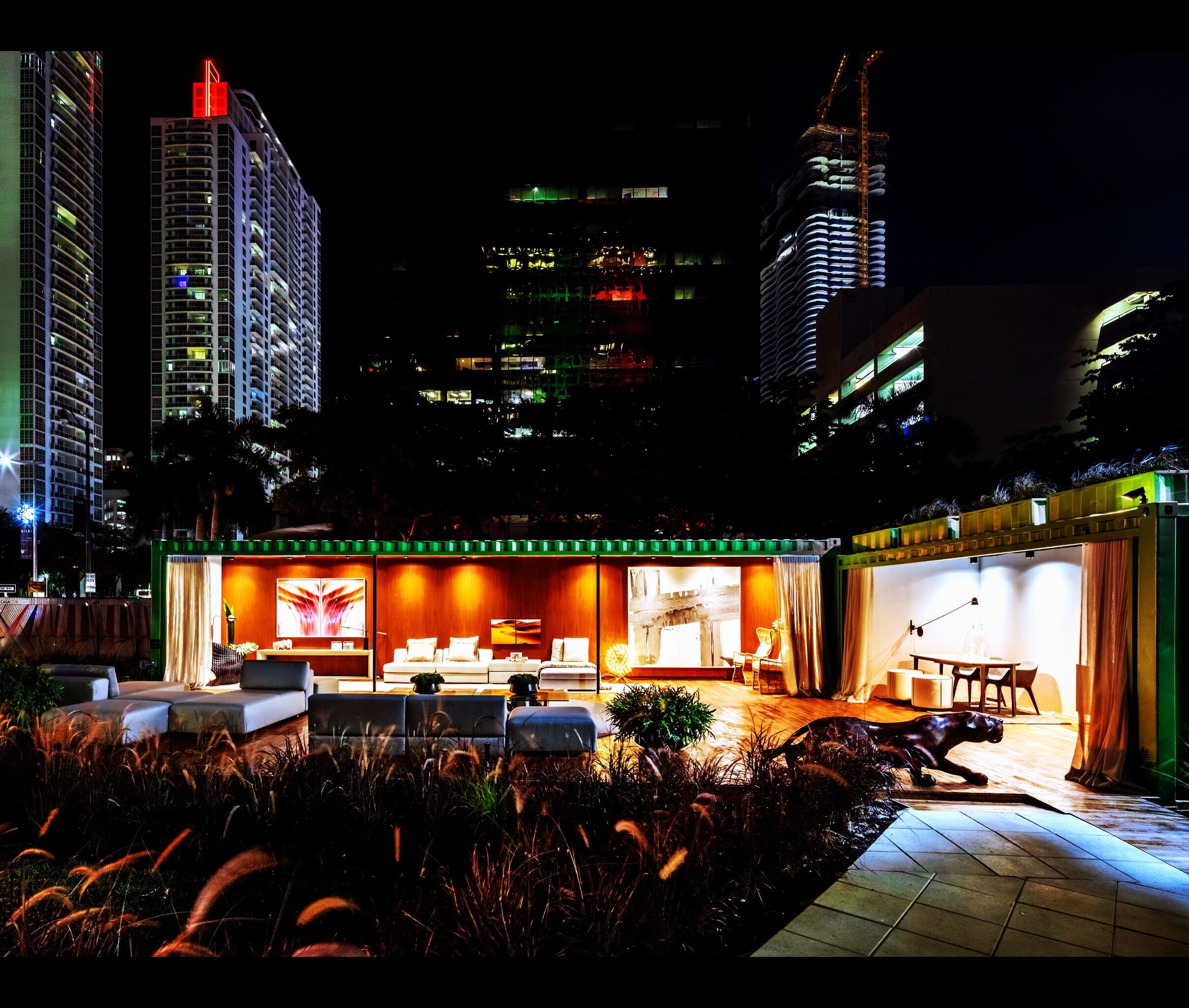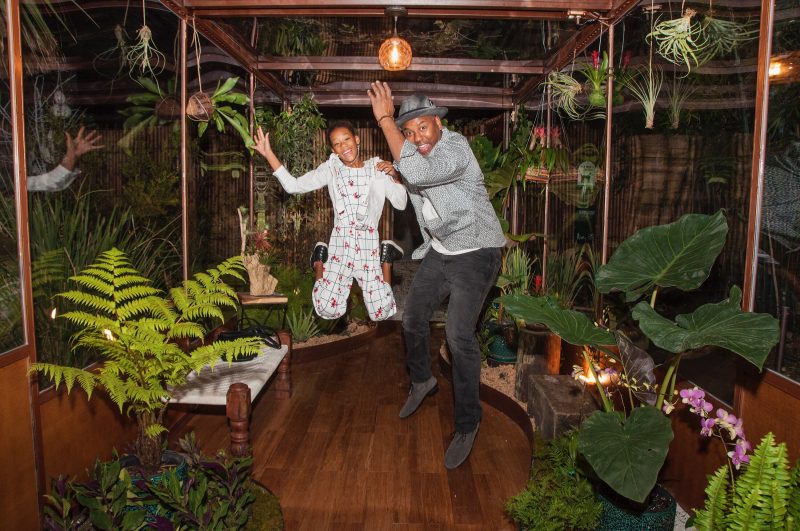Timothy Dunlap saw the potential for turning recycled shipping containers into creative, affordable spaces for entrepreneurs to showcase their products, and started his company Cepods to design and lease containers for use as pop-up retail.
“I thought I could put together event-type pop-up retail spaces,” said Dunlap, the Miami entrepreneur and designer also known as Tian Mao. “It’s putting small businesses in high business locations on a temporary basis in a movable structure.”
A container for an apparel company at the 2014 South Beach Wine & Food Festival was his first sale and others followed.
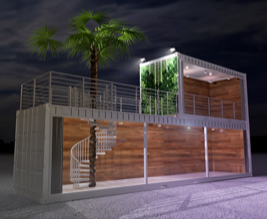 But a few years into his business, Dunlap focused on expanding his vision – and his product and service – in order to grow. Now he’s doing container popups for all kinds of uses – including restrooms (they call them Cepoddies), offices, bars, outdoor living spaces and even two-story air-conditioned VIP lounges, for instance. These containers are often high-design, with bamboo flooring and modern lighting recycled from demolition sites.
But a few years into his business, Dunlap focused on expanding his vision – and his product and service – in order to grow. Now he’s doing container popups for all kinds of uses – including restrooms (they call them Cepoddies), offices, bars, outdoor living spaces and even two-story air-conditioned VIP lounges, for instance. These containers are often high-design, with bamboo flooring and modern lighting recycled from demolition sites.
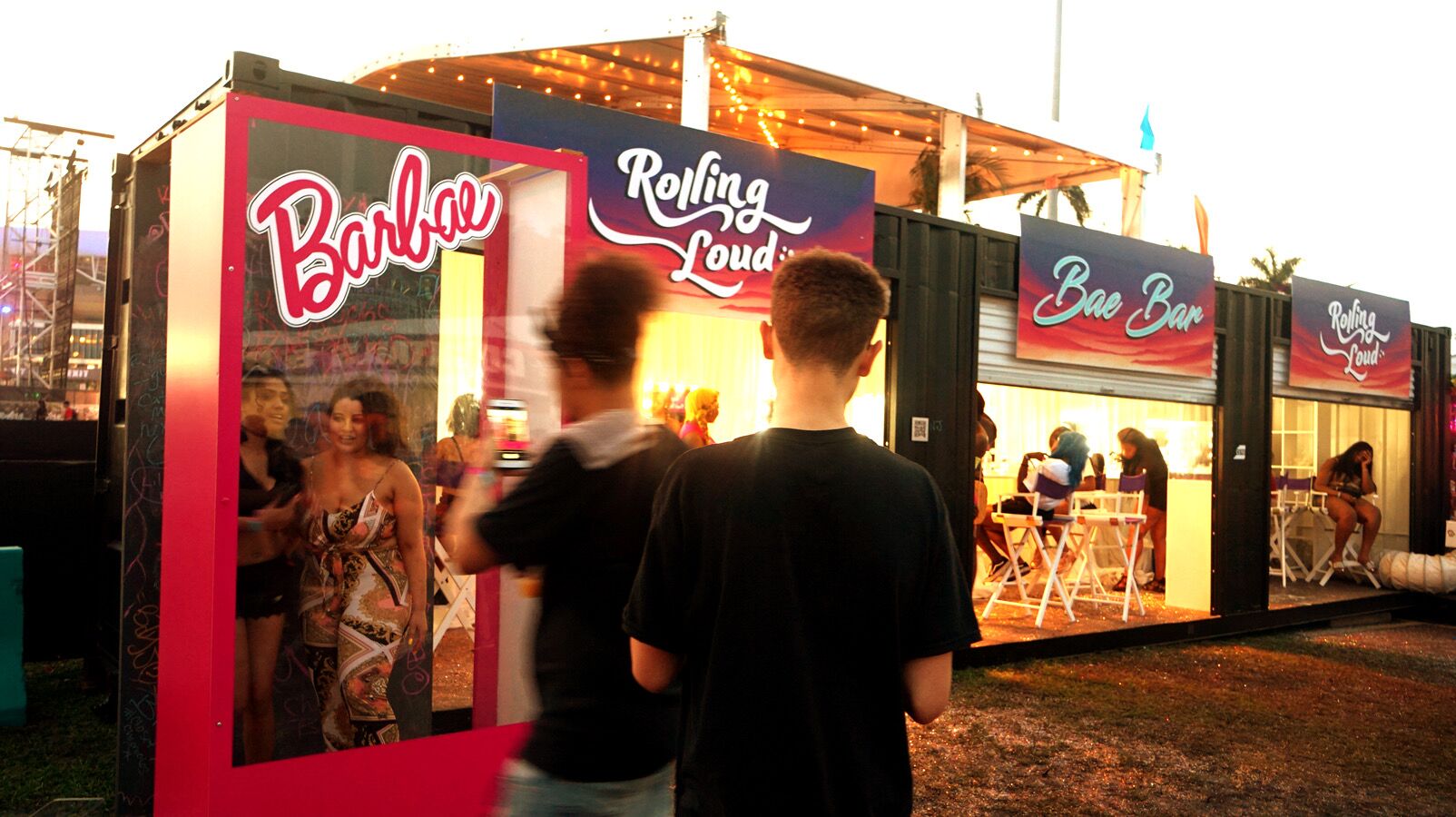 For the Rolling Loud festival, his Cepods were used as spaces where hip-hop artists could do interviews. Another grouping of Cepods provided spaces for Instagramable moments, while still another was used as a beauty booth.
For the Rolling Loud festival, his Cepods were used as spaces where hip-hop artists could do interviews. Another grouping of Cepods provided spaces for Instagramable moments, while still another was used as a beauty booth.
“The way we build the containers, we keep them convertible. We lease them out and transform them into different uses,” said Dunlap, whose team was at work on containers for Delray Beach during this interview.
On Lincoln Road, some of those uses have been a Santa Cabana, a kissing booth and an origami garden.
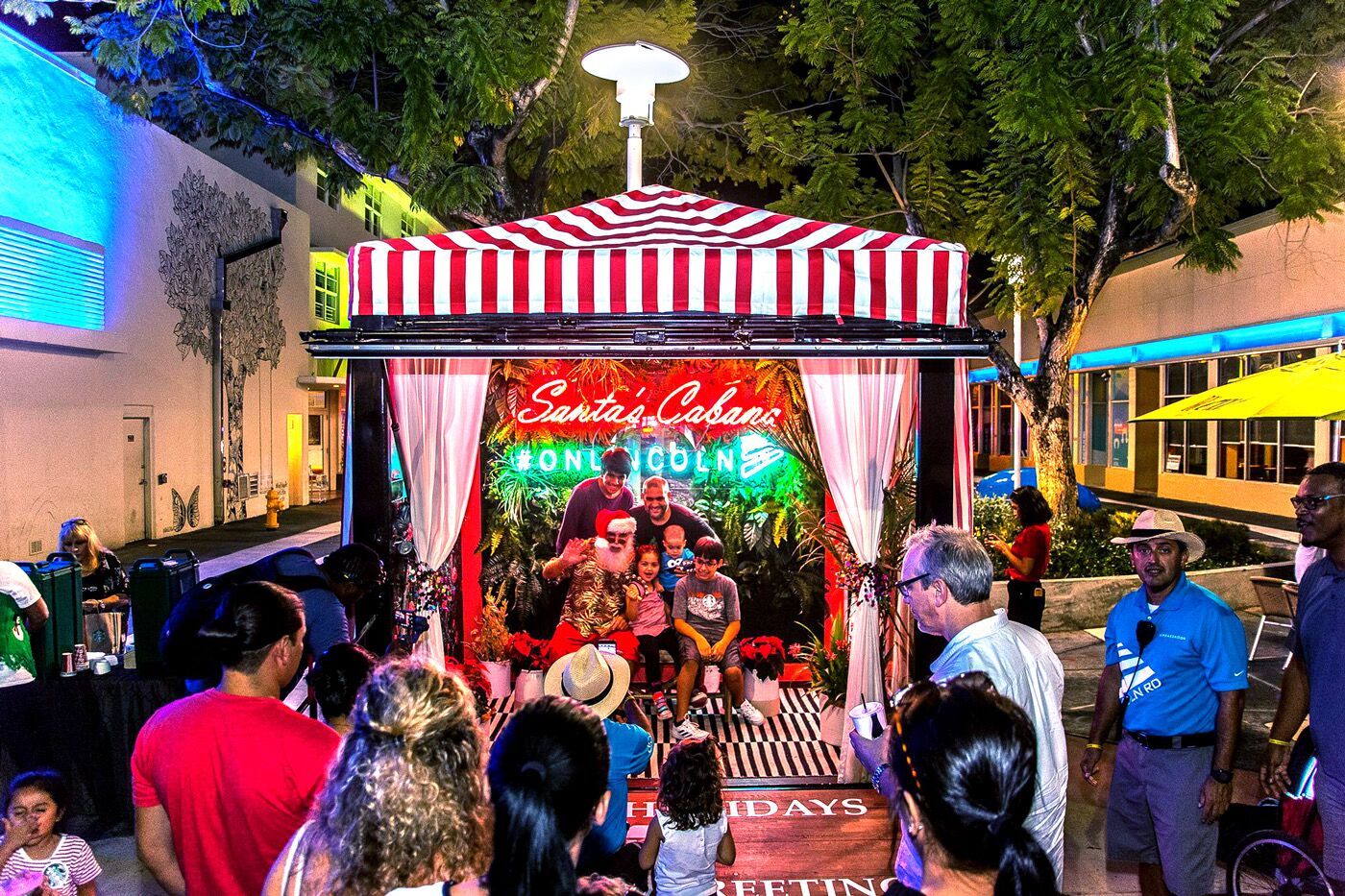
There’s a human-sized terrarium designed by Cepods in the Upper Buena Vista Retail Sanctuary. Originally a pop-up for Art Week, the lush, tropical space has had such a great following the Cepods project is still parked there.
About a year ago, Cepods put in a storage-intake facility for a Homestead fruit farm. And Dunlap is self-financing a retail marketplace in the northeast Miami area.
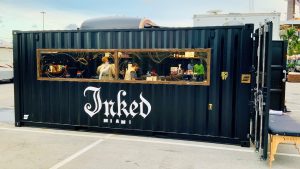 “We should have a lot more activations for all the vacant land we have. It brings jobs, it brings more people into town, quick construction, quick removal – it’s a no-brainer,” said Dunlap, who has run a variety of businesses before Cepods, including for real estate.
“We should have a lot more activations for all the vacant land we have. It brings jobs, it brings more people into town, quick construction, quick removal – it’s a no-brainer,” said Dunlap, who has run a variety of businesses before Cepods, including for real estate.
George Ray agrees. He’s a consultant with Florida SBDC at FIU, the small business development center within FIU’s College of Business, who has been working with Dunlap on growing his business.
“He’s creating micro retail spaces which are very innovative and solving a critical problem, because a lot of entrepreneurs can’t afford the cost of traditional brick and mortar locations.” Ray said. “It’s socially responsible as well, because it is all recycled materials.”
Dunlap has been able to grow because he is thinking outside the box and growing through innovation. He was recently named Minority Small Business Owner of the Year for the South Florida district by the SBA.
“Typically In the first 3 to 5 years, startup companies experience a lot of growth,.. It’s important in that period to start looking at culling new segments of the market, producing new products or looking at new areas to find growth,” said Ray, who specializes in advising startups and franchises.
Otherwise, Ray said, small businesses typically hit the point where sales begin to level off.
“They get comfortable, they are comfortable with being comfortable. But my philosophy is if you are not growing, you are in neutral, which is the same as being in reverse, because you are just waiting for someone else to swallow you whole.
“It’s important to get ahead of the curve, not just being reactive but thinking about these things as you are growing,” Ray said, just as Cepods is doing.
Now Cepods is expanding with permanent structures in addition to its wide variety of pop-ups, nationally as well as locally. Cepods is working with City of Miramar for a permanent project that will likely include a variety of concession stands, a VIP lounge, refrigeration storage and Cepoddies.
Dunlap is hoping to enter the residential housing market too, and sees the containers as a viable option for affordable and workforce housing, student housing or hotels. Dunlap also presented it at Miami-Dade meeting as a solution for housing for the homeless.
Dunlap said he wants Cepods to be known as company that designs, leases and consults on permanent structures of all kinds, in addition to pop-ups. “My goal is to be a developer using alternative materials.”
Along with growing through innovation, companies also typically grow through acquisitions or expanding into new territories, Ray said.
The latter is what Cepods is exploring now. A group of FIU MBA students may be helping the company with an export plan. “Literally it’s the perfect product to ship out. A lot of third world countries don’t have the materials to build these things,” Ray said.
Dunlap agrees. He’s been talking to business people in the Caribbean who are interested in Cepods providing the base and design and then shipping them in and having the finishing work done by locals, providing local jobs.
Cepods’ social media analytics show a lot of interest from South America as well, and Dunlap has already been approached a potential shipping partner.
Said Dunlap: “If the numbers work, we will try it.”
All photos courtesy of Cepods. At the top of this post, Cepods founder Timothy Dunlap, also known as Tian Mao, celebrates another successful Cepods installation with his daughter.
Please send GrowBiz topic suggestions and feedback to GrowBiz@FIU.EDU.
